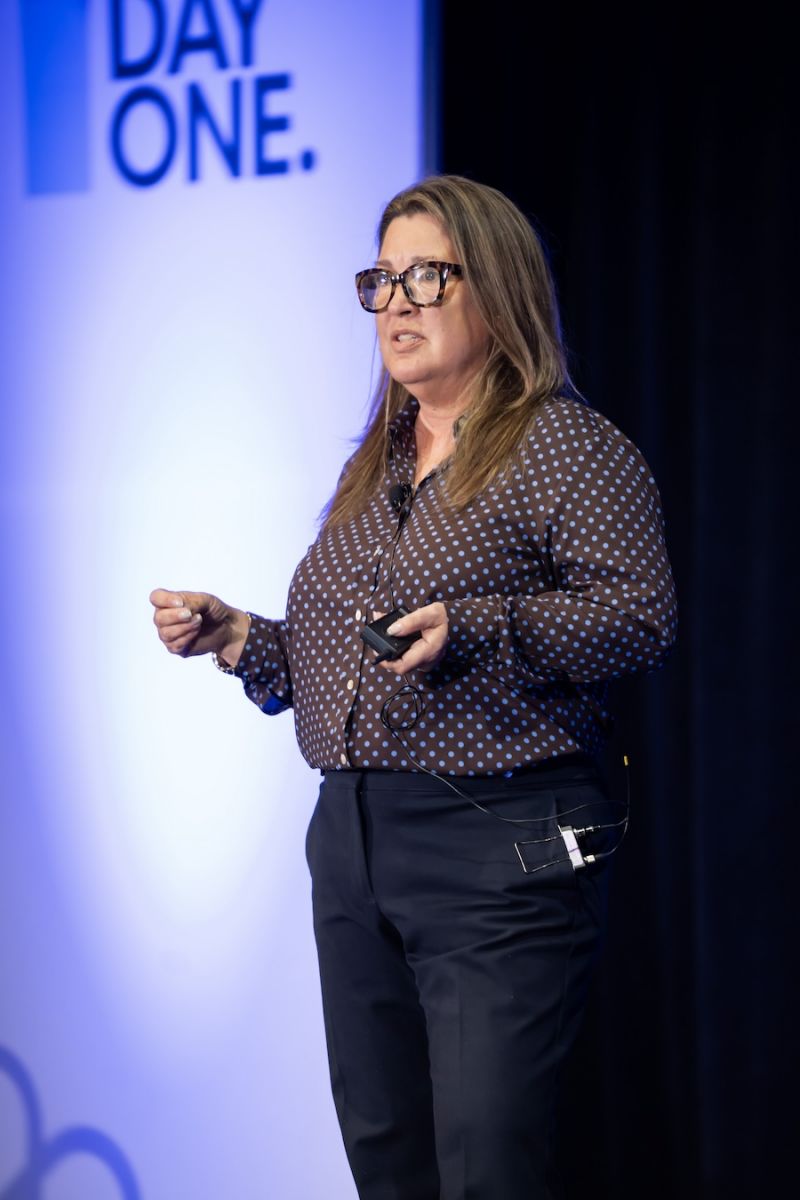HR’s Role in the Shift From Performance Evaluation to Performance Enablement


“At the beginning of the year you get a goal, you meet with your manager, maybe, if you’re lucky, in June, you have a conversation about your own development or personal growth. And at the end of the year, on an employee's favorite day of the year, they get to sit in intense anticipation, anxiously waiting to hear from a manager where they score on a scale,” said Jamie Aitken, VP of HR transformation at Betterworks. Aitken was describing a process that often doesn’t inspire workers, employers, and managers alike–performance evaluations.
It’s no wonder companies are looking for alternatives. During a thought leadership spotlight at From Day One’s Austin conference, Aitken shared an alternative approach, called performance enablement. She believes that a continuing process of feedback and coaching serves employees and companies better. This steady process encourages mentoring, produces fairer assessments, and opens up opportunities for employee growth.
The annual performance meetings can be nerve-racking. These sessions determine the prospects of so many employees. And yet the whole process is rushed, with evaluators tempted to just go through the motions.
“Managers didn’t like doing it. [They] felt it was burdensome. Employees certainly didn’t enjoy the experience at all. Leaders don’t feel like it actually moves the needle, but rather, it’s a bit of a check in the box,” said Aitken.
A Shift to Performance Enablement

Performance enablement is a distinct approach to enhancing worker performance, says Aitken. The focus is less on critiquing and more on coaching. Feedback is more regular and incorporated into everyday office interactions, and credit for progress is more immediate.
Making work more meaningful is key. “Frankly, all of us still strive and yearn for meaningful work. We still want the connection to the values and what the organization is trying to achieve. That becomes very important for us to see how we’re contributing to that,” said Aitken. When done right, performance enablement brings that desire for meaning in work to the fore, she says.
Overcoming Obstacles to Performance Enablement
But to make performance enablement work, attitudes and habits need to shift throughout the company. HR leaders need to think of the process differently. They no longer own or control the system. Their job is to design a process for goal setting and coaching, but then they should let employees and managers create their own goals and open up spaces for coaching, says Aitken.
Instead of chasing managers for evaluation forms, HR works to make the experience work smoothly, so it becomes easy to incorporate goals, tracking, and coaching into the working day. Meanwhile, employees need to become more active–they are no longer passive listeners as their managers offer critiques and kudos. Their role is to contribute ideas for goals and set their own paths for development.
The Importance of Leadership
Managers, for their part, cannot simply fill out an evaluation form and be done with it for the rest of the year; they need to give feedback on a more regular basis. They need to think of themselves as coaches, teaching skills and reinforcing high performance in real time.
This can be tricky because managers are frequently chosen for technical skills. They want to solve problems quickly, but performance enablement requires more patience and people skills. Coaching may involve letting a team work through a problem rather than stepping in to diagnose and fix it oneself, which takes patience. These are traits that managers can’t always learn overnight, says Aitken.
Lasting change starts at the top. C-suite leaders need to model a culture of regular feedback and coaching, setting the tone for performance empowerment rather than handing off employee development to middle managers or HR.
Editor's note: From Day One thanks our partner, Betterworks, for sponsoring this thought leadership spotlight.
Paul Kersey is a former attorney and freelance writer based in Chicago, IL. His articles on labor and employment issues have appeared in the Chicago Tribune, the Detroit News, and other Midwest newspapers.
(Photos by Shutter2U/iStock)
The From Day One Newsletter is a monthly roundup of articles, features, and editorials on innovative ways for companies to forge stronger relationships with their employees, customers, and communities.